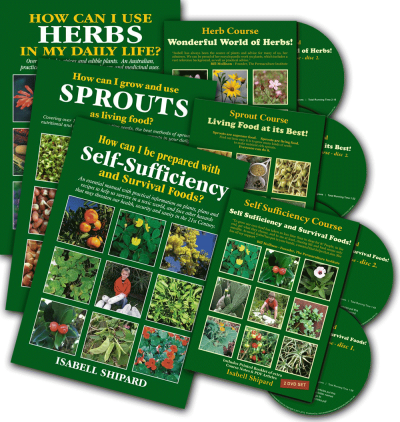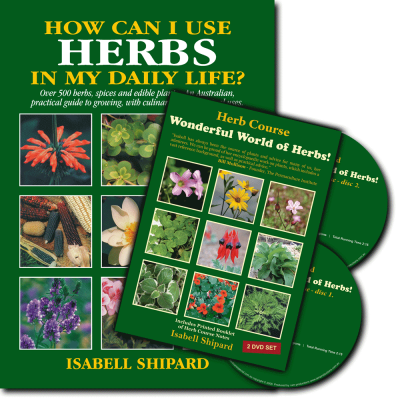St. John’s Bread, Locust Bean, Sugar Pod
Ceratonia siliqua F. Fabaceae
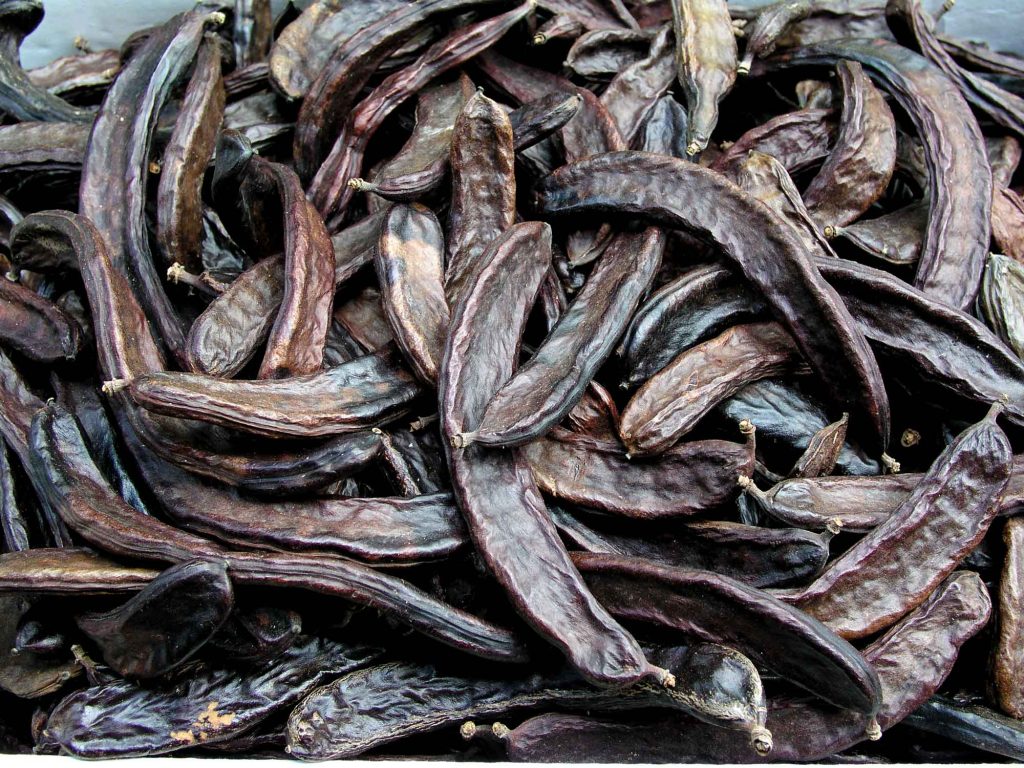
… … omitted text, please see How can I use HERBS in my daily life? for full text.
Medicinal Uses
One of Carob’s principal medicinal value lies in its high pectin content. Pectin is a gelatinous water soluble substance, valuable for assisting digestion, and protecting the body naturally against diarrhea, and bacterial infections. Carob is also used for heartburn, and as an easily digested food. Another valuable component of carob are lignans. Lignans have been found to be antiviral, antifungal, antibacterial and anti-inflammatory. They also show anticholesterol, anticancer, antidiabetes, antioxidant and antilupus benefits. Lignans are phytoestrogens and have been observed to have a protective role against oestrogen-related cancers, and to serve as oestrogen replacement after menopause.
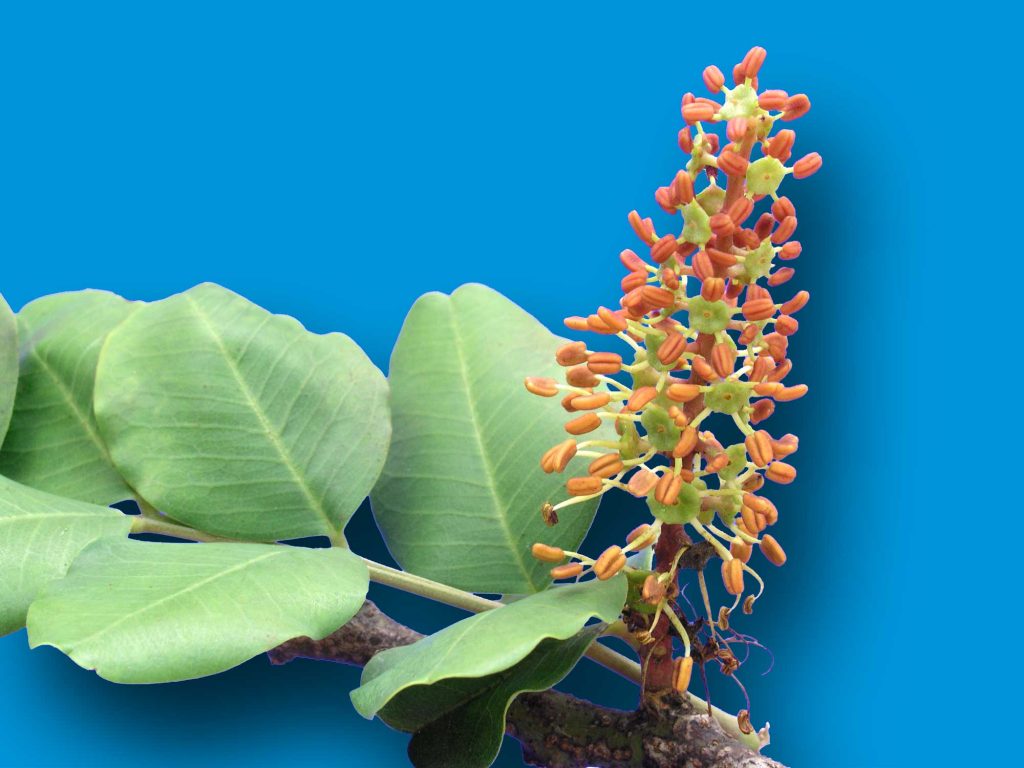
Carob’s tannin content also inhibits bacteria, and can stop certain toxins and free-radicals in their tracks, inactivate them, and get the body to discard them. A research study, using carob powder with babies for bacterial or viral diarrhea, showed recovery within 2 days. Babies treated with conventional medicine took almost twice as long to recover. The babies given carob also regained normal temperature and body weight quicker. The high fibre content of carob, together with the pectin, makes the stomach contents more glutinous, thus deterring the back-flow of acid in the throat.
… … omitted text, please see How can I use HERBS in my daily life? for full text.
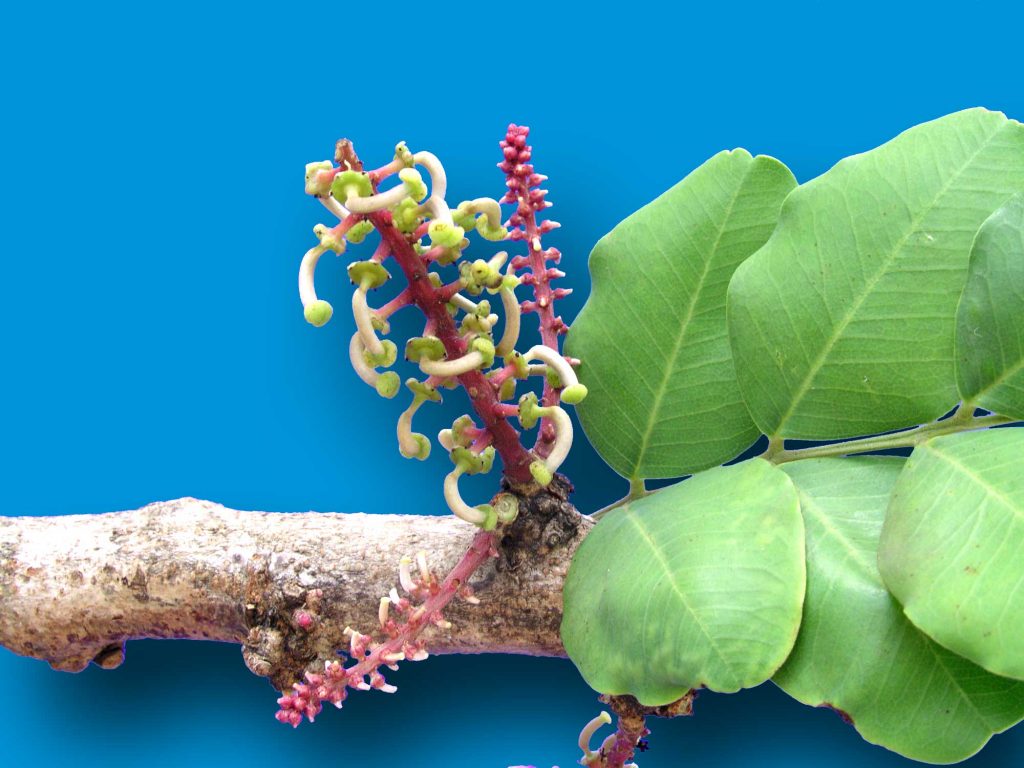
Culinary Uses
Carob has been used by man as a food for thousands of years and has been called, ‘the staff of life’, ‘universal provider’, ‘bread that grows on trees’, all of which signify the importance carob has had. It is filling, nutritious, and easily digested, and is an alkaline forming food (pH 10.6), which makes it valuable for reducing excess stomach acidity.
… … omitted text, please see How can I use HERBS in my daily life? for full text.

